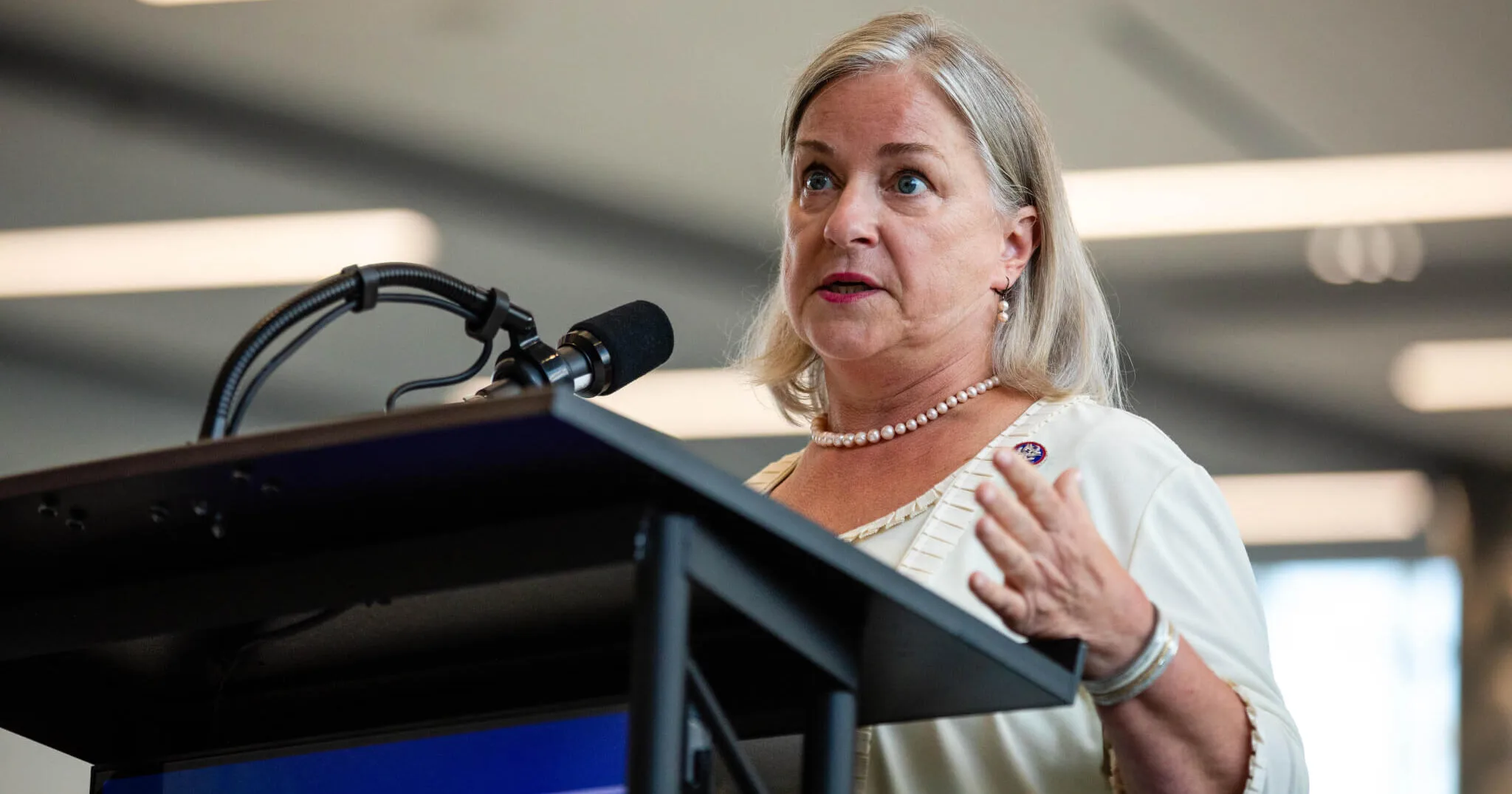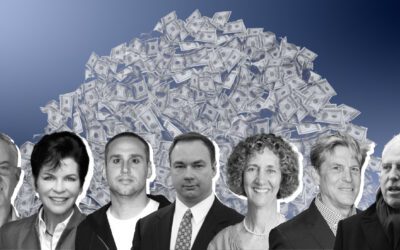
Congresswoman Susan Wild speaking at the grand opening of a TSA security checkpoint at the Lehigh Valley International Airport on July 28, 2023 (Photo: Sean Kitchen)
US Rep Susan Wild went on the offensive defending workers rights at an anti-union hearing on Thursday. Union workers earn 11.2% more than their non-union counterparts according to the US Bureau of Labor Statistics.
Congresswoman Susan Wild (D-Lehigh) confronted Mark Mix, president of the anti-union National Right to Work Committee, about his organization’s anti-worker views at a US House Health, Education, Labor, Pensions (HELP) Committee hearing on Thursday.
Wild pressed Mix, who was testifying in favor of a law that would call for states to adopt so-called right-to-work laws, about the benefits union workers have over their non-union counterparts. These benefits include better wages, better benefits and workplace protections.
“I am proud to represent a community with one of the richest legacies of organized labor anywhere in the country,” Wild said in a statement. “In Pennsylvania 7, we know that strong unions are the key to a strong economy where people can work hard and get ahead and can support their families.”
The whole point of “right to work” laws is to cripple the ability for unions to organize workers by allowing workers to benefit from having a union while not paying union dues or agency fees for that representation, essentially creating a free-rider system where someone reaps the benefits without having to pay for that representation.
On top of not having the protection of a union, workers living in states with “right to work” laws typically make less than their counterparts living in states without these types of laws on the books. According to a report by the Economic Policy Institute, a progressive leaning economic think-tank, workers in these states earn at least 3.2% less than workers in states without “right to work” laws.
At Thursday’s hearing, Wild asked Mix if it’s against the interest of union workers earning 11.2% more than their non-union counterparts. Mix replied by saying “no.”
Wild then followed up asking if it is “against the interests of workers to have better access to paid leave and pensions, to more benefits that again, unionized workplaces are much more likely to offer.”
Mix then replied by saying, “I would say no. I mean the idea of those benefits being available, why wouldn’t you rely on volunteers? And why do you need compulsion?”
Support Our Cause
Thank you for taking the time to read our work. Before you go, we hope you'll consider supporting our values-driven journalism, which has always strived to make clear what's really at stake for Pennsylvanians and our future.
Since day one, our goal here at The Keystone has always been to empower people across the commonwealth with fact-based news and information. We believe that when people are armed with knowledge about what's happening in their local, state, and federal governments—including who is working on their behalf and who is actively trying to block efforts aimed at improving the daily lives of Pennsylvania families—they will be inspired to become civically engaged.


‘No tax on tips’: What does it mean for Pennsylvania’s tipped workers?
Eligible tipped workers would receive an average annual tax cut of $1,700. But according to the Economic Policy Institute the benefits would heavily...

IRS is phasing out paper tax returns. What it means for next year’s tax season
The days of getting your tax refund in the form of a paper check will soon be a thing of the past thanks to an Executive Order from the White House....

You may qualify for WIC food assistance under new income rules. Here’s what’s changed
According to new income guidelines, a family of four would qualify for WIC if they earn $59,478 annually, compared to $57,720 in 2024. The income...

The Little League World Series generated nearly $40 million for Lycoming County’s economy
With the NFL Draft in Pittsburgh, and the FIFA World Cup, March Madness, and MLB's All-Star Game taking place in Philadelphia, major sporting events...

Microsoft describes Three Mile Island plant as a once-in-a-lifetime opportunity
The Dauphin County plant’s reopening will support at least 650 permanent jobs and hundreds of other positions during the recommissioning process. In...





